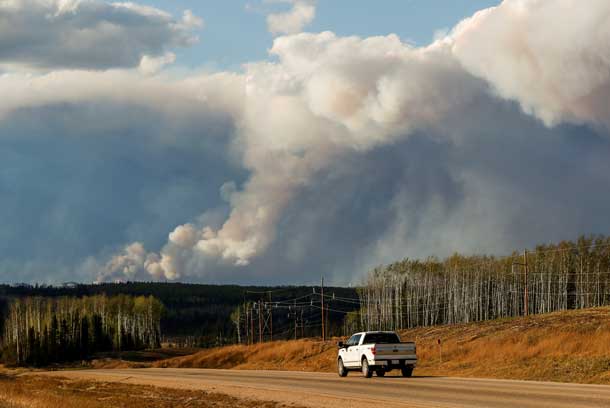THUNDER BAY – LIVING – A new report from Allstate Insurance Company of Canada reveals that nearly 30% of all home insurance claims over the past decade stem from catastrophic weather and climate events.
The recent ice storm in southern Ontario which knocked down trees, took down power lines for almost half a million plus Hydro One customers and caused widespread damage is just the latest storm to wreck havoc on Canadian property owners.
As severe storms, wildfires, and floods become increasingly common across Canada, the company is urging homeowners—including those in Thunder Bay and Northwestern Ontario—to act now to minimize damage before the next storm hits.
According to Allstate’s data, 2024 saw a dramatic spike in climate-related insurance claims—approximately 2.4 times higher than in 2023. The Insurance Bureau of Canada echoed this alarming trend, reporting a record-breaking $8.5 billion in severe weather-related losses nationwide last year.
And yet, only 27% of Canadian homeowners feel “very confident” that their home is ready to handle a major weather event, according to a Léger survey commissioned by Allstate earlier this year.
“Large weather and climate events are affecting more Canadians more often, year after year,” says Odel Laing, Agency Manager at Allstate Canada. “While insurance helps with recovery, there are many personal items—family heirlooms, photographs—that money simply can’t replace. Being proactive is essential.”
Why This Matters in Thunder Bay
Thunder Bay has not been immune to extreme weather patterns in recent years. From heavy rainstorms causing basement flooding to wildfires in the region affecting air quality, local residents are increasingly experiencing the frontlines of Canada’s shifting climate. The local geography, with its mix of boreal forest and urban sprawl, makes preparation especially critical.
5 Steps to Help Safeguard Your Home
Allstate offers these preparedness tips that could help protect Thunder Bay homes and families:
-
Create an Emergency Plan: Know the safest spots in your home, set up a family contact plan, and learn evacuation routes.
-
Build a 72-Hour Kit: Include water, non-perishable food, flashlights, first aid, medications, and waterproof copies of key documents.
-
Fortify Your Property: Install sump pumps and backwater valves. Reinforce windows and secure outdoor items ahead of storms.
-
Wildfire Safety: Maintain defensible space by clearing dry vegetation and using fire-resistant building materials.
-
Review Your Insurance: Ensure your policy reflects the latest risks in your region, including overland flood and wildfire coverage.
Survey Details
The findings are based on an online survey conducted by Léger from January 23–27, 2025, involving 1,000 Canadian homeowners aged 18 and up. While not probabilistic, a similar-sized representative sample would have a margin of error of ±3.1%, 19 times out of 20.
Local Takeaway
With the cost and frequency of severe weather only expected to rise, homeowners in Thunder Bay are encouraged to think ahead—not just about repairs, but about readiness. The best time to prepare isn’t when the sky darkens—it’s when it’s still blue.








